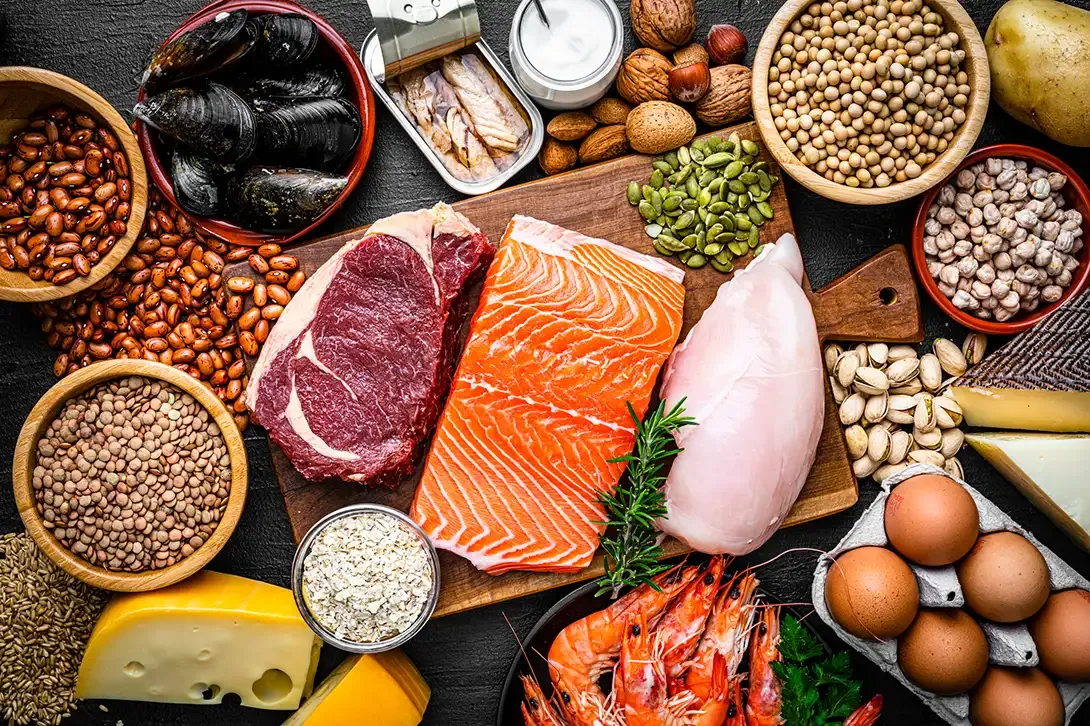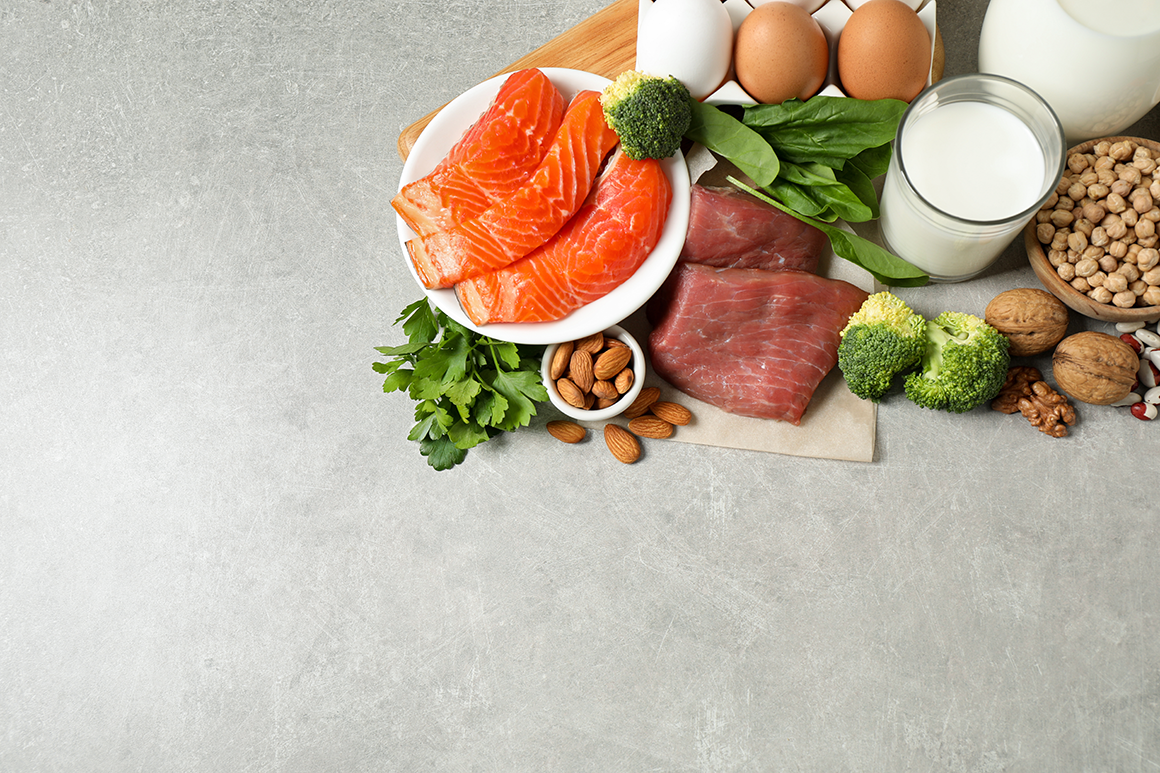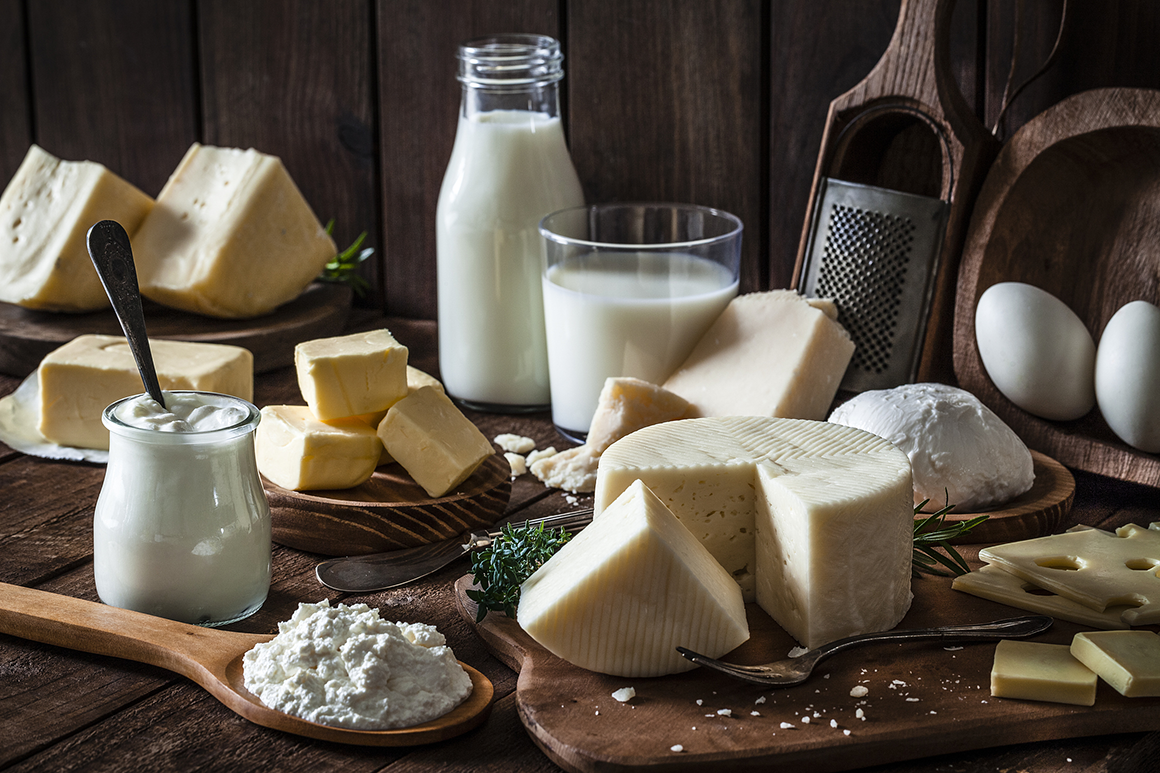
Facts and fiction about the protein diet
Protein diet has become popular with the promise of helping to lose weight and gain muscle mass. But what is the truth behind these statements? We analyse this topic with Dr. Jaume Gimenez.
A protein diet or a diet high in protein is considered to be one that provides more protein than proposed by the general recommendations; that is to say, over 15% of the overall intake. Some of these diets go way above these figures (even reaching 25-30% of the energy stemming from proteins) and they coincide in one factor: as the proportion of proteins increases, the amount of carbohydrates drops.
Many protein diets have become popular in recent years, with a large number of followers and detractors, and a series of beliefs around this nutrition model. Below, we will go over some them with Dr. Jaume Gimenez, a nutritionist and head of the Nutrition and Nutritional Coaching Service at Assistència Sanitària to find out whether they are fact or fiction.
Fact or fiction?

All protein sources are the same.
1 of 4
There are different protein sources that we can place in two large groups according to their origin: animal and vegetable. Animal protein is considered to have higher quality, as it contains all the essential amino acids in suitable amounts and it is easier to absorb. It is present in meats and poultry, fish and seafood, eggs and dairy products. However, the World Health Organisation (WHO) recommends limiting the consumption of red meat (it is not recommended more than 1 or 2 times a week) and processed meat.
Vegetable protein can be found in legumes (chickpeas, lentils, beans, soy and its derivatives such as tofu), dried fruit and nuts (walnuts, pistachios, almonds, cashew nuts, etc), seeds (hemp, linseed, sesame, etc.) and wholemeal cereals (quinoa, buckwheat, millet, etc.).

A protein-rich diet can damage the kidneys or the liver in the long term.
2 of 4
As Dr. Gimenez explains, “high protein diets can contribute to weight loss, as by increasing the satiating effect, they can help to reduce a person’s calorie intake. Additionally, the digestion and the metabolism of proteins need more energy, increasing the energy consumption.”
In the consensus by the Spanish Federation of Nutrition, Alimentation and Diet Societies (FESNAD) and the Spanish Society for the Study of Obesity (SEEDO) on the role of diet in the prevention and treatment of overweight and obesity in adults, it declares that a hyper-protein diet does not induce greater weight loss in the long term compared to a conventional diet. When following this type of diet, in fact, the recommendation is to limit the consumption of animal protein as a high consumption of meat and its derivatives can increase weight gain and abdominal perimeter.

A protein-rich diet can damage the kidneys or the liver in the long term.
3 of 4
This subject is usually controversial and it is a good idea to qualify certain points. Some studies indicate that, in obese people, the following of animal protein-rich diets can increase the risk of kidney diseases. Likewise, the consumption of proteins is usually limited in people who already suffer from any type of kidney damage. However, a moderate increase of the protein in the diet should not mean a problem in the healthy population. “A meta analysis of twenty-eight studies concluded that there is no evidence that links high protein intake with deterioration in the kidney function in people without any pre-existing diseases of this type,” Doctor Gimenez underscores.
This is the same case that occurs with the impact of protein diets on the liver. Today there is not enough scientific evidence to affirm that there is a cause-effect relation between a high- protein diet and liver damage. Mind you, there are other risks associated with an excessive intake of protein. For example, ammonia accumulation, which could overload these organs and cause consequences that are harmful to health.

You must follow a protein diet to increase muscle mass.
4 of 4
The recommendation by the European Food Safety Authority (EFSA) to maintain muscle mass in adults is 0.83 grams of protein per kilogram of body weight per day. And it proposes higher levels for those people who follow an active lifestyle, habitually carrying out physical exercise, reaching up to 1.6 grams of protein per kilogram of weight every day.
From all this, we can deduce that, to obtain an increase in muscle mass, it is necessary to increase the amount of protein in the diet above the general recommendations. However, as Doctor Gimenez comments, “if suitable stimulation is not generated through training or physical exercise, the increase in protein intake by itself will not be enough for a significant increase in muscle mass.” In addition to this, “it is necessary to combine it with strength exercise, a rest and a suitable intake of other nutrients with certain vitamins, minerals and fatty acids such as omega 2.”




